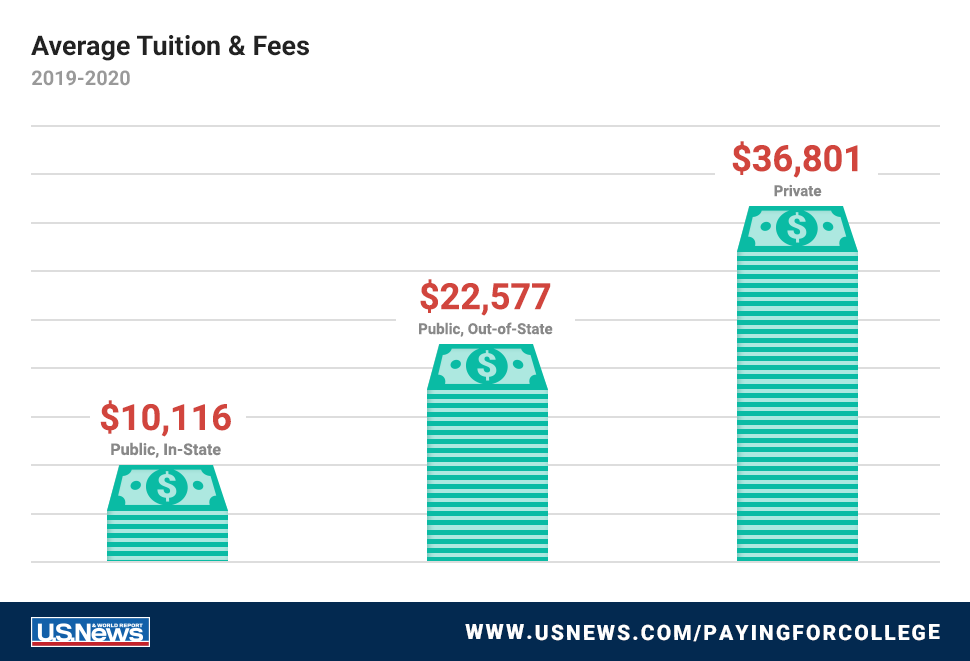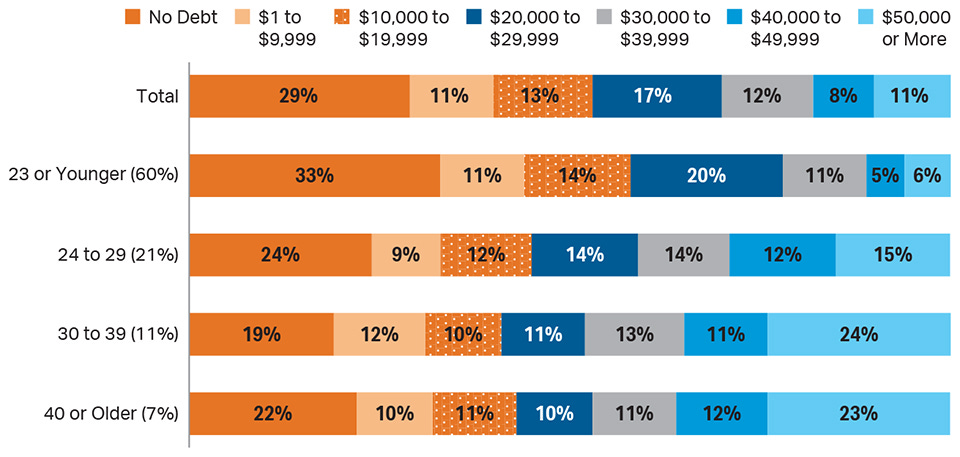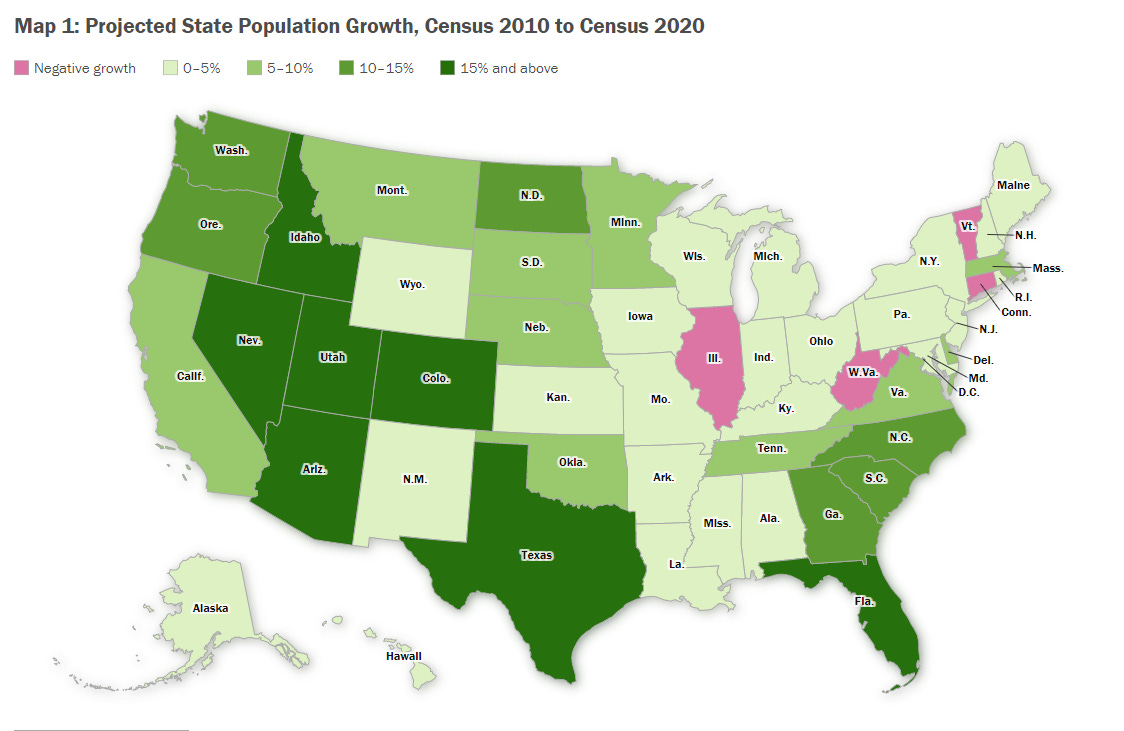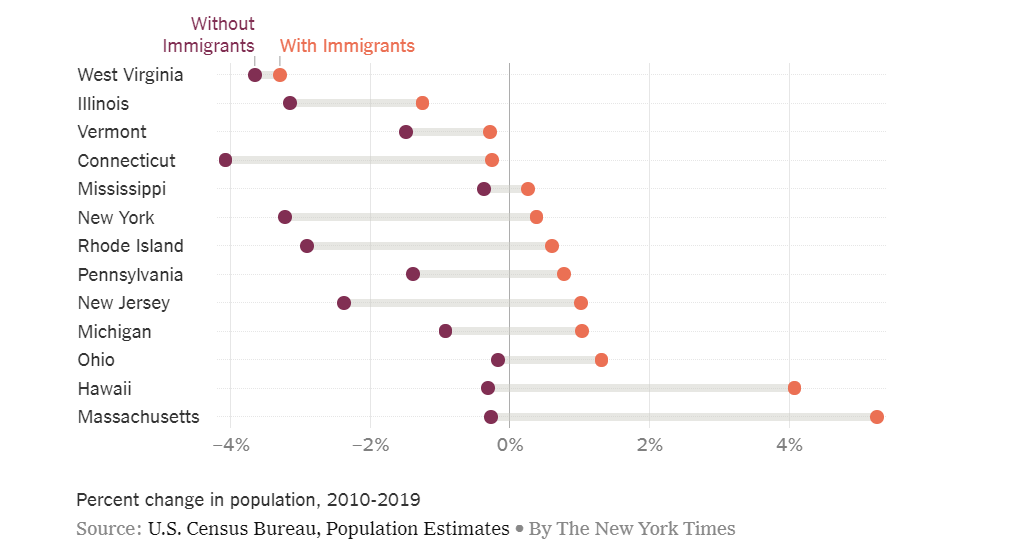#81: Shoutouts from Tyler Cowen, Boomer Thoughts, RIP College Wealth Premium & Dark Side Of Consulting
Boomer blockade goes semi-viral, exploring where people might live in the US in the future and other thoughts on work
Ferbruary 1st 2020: Greetings from Taiwan. Things are getting a bit tense here because of Coronavirus fears. Almost everyone is wearing facemasks outside of the home, but Taiwan still seems relatively okay compared to China right now. Stay well my friends!

👋 Greetings to Geoff, Jorge, Rachel, Ivette, Marcuss, Leila, Jim, Christina, Rachel, Alexandra, Erika, David, Molly, Brad, Rodrigo, Noj, Tony Hajiyev, Dave & Robin
🙏 If you'd like to become a supporter, you can do so here or become a recurring patron on Patreon
🆕 On Boundless: I wrote an essay on the "dark side" of consulting
📩 Share this newsletter via e-mail or twitter#1 “Old People Have All the Interesting Jobs in America” and Tyler Cowen Shares My Post #lifegoals
Tyler Cowen ended up posting a short post similar to by my bloomer blockade hypothesis:
As more and more experience is required for many of America’s top and most influential jobs, fewer and fewer young people qualify. Those same young people move into low-return, high-stability, establishment-oriented activities. At the same time, the elevation of so many senior individuals may erode risk-taking and creativity, as they fail to bring fresh perspectives to their jobs.
His central worry is that the current paradigm in work destroys human creativity:
I have no rancor against lawyers, financiers or management consultants, but the pursuit of these careers seems like a mis-allocation of human creativity
I ended up sending him my article via e-mail and he shared it on his blog:

Damn #lifegoals. Been reading his blog since 2005 or so. Very cool.
His post led to the article being shared quite widely throughout the web, going semi-viral on Hacker News and being shared on Twitter as well as crashing my website for a bit. I’m still trying to digest some of the feedback, but I thought I’d share some e-mails I received.
Many seemed to get the essence of what I was saying which is that we need more narratives for what success looks like and we need a grappling with the fact that while work has been one of the prime ways for people to find meaning and financial security in the past, it may not be possible for as many people moving forward and as Tyler also points out, it is keeping enormous creative potential in waiting.
👉 One reader, Thomas, brought up a great point:
The problem is that our society does not offer an alternative like for instance a smooth downgrading and handing over to young people without unemployment and loss of meaning.
Living longer is great, but retiring at 60 is a pretty risk bet if you have health issues, don’t qualify for medicare and haven’t spent much time cultivating a life outside of work. Even if your job isn’t ideal, going to spend time with people you generally like and being intellectually challenged is going to seem better than the perception that you need to rebuild your life from scratch.
The optimistic case is that large number of boomers shifting into retirement will help give energy to many local communities and institutions. We will see!
👉 Clayton offered similar reflections and points out that everything seems to have been pushed back 10 years in life:
We are younger than our parents were at our age, and with work the most meaningful part of life, want to continue it: plus, continuing work means more opportunity for travel and other enjoyments of life.
We are in some ways less secure than our parents as we do not have pensions as they did, and with increased life expectancy, we work longer to build up a cushion for that.
On the positive side though, the younger generations also enjoy a longer time, through their ‘20’s, of pre-adulthood. My generation graduated college at 22/23, got married and started families-our first travels abroad were often once our kids graduated college. Often we entered career paths that were not fully explored, simply because we had to-there was no option of a few year break, then grad school into a different career.
In the long run, everything has shifted 10 years later. My generation will, eventually, get out of the way and then following this there will be an enormous transfer of wealth from us to the younger generations.
In my early ‘20’s, I once remarked to a 55 year old executive about how they had is so much better graduating into the 1960’s workforce-high growth, low interest rates (5% to 8%) while in the early 1980’s low growth recession we faced 14% mortgages. “It will come,” he said, “it just takes time”. “Work smart, work hard, and it will come”. And, it did, as it will for the younger generations.
👉 A Gen Z reader even offered his reflections:
In the world of work, it sometimes feels like us Gen Zs / young millennial are caught between a rock and a hard place. There seem to be relatively fewer “standard” opportunities. Automation and gig work reduces entry level jobs, while increasing healthspan means Boomer senior managers work longer careers.
Since rich senior managers tend to have access to the best healthcare, nutrition etc. I think the Boomers will be sticking around. Instead of another “youthquake”, Imo we’re more likely to see the young forsake traditional institutions entirely, in favour of more gig-work, lifestyle businesses and startups.
It’s an interesting time for work and how people are thinking about fitting work into their lives. What a fun time to be exploring all these ideas 🙂
#2 Four Blind Spots Of Strategy Consulting

As many of you know I spent almost ten years in the consulting biz. Recently, McKinsey has been the face of many attacks on the industry, mostly because Pete Buttigieg is running for president.
His time was likely spent making thousands of PowerPoint slides of little consequence, the fate of many consultants. Yet I do think there are some fair criticisms of the industry. I identified four:
Diversity is embraced, as long as you went to an elite University
Faith in a simple model of top-down change in modern institutions
A belief that the scale of “impact” matters more than what you are doing
Work is thought the be the prime aim of life
I wrote this because I think the consulting industry can do much much better and perhaps even be bolder in terms of how it thinks about innovative business ideas. But first it will have to transcend some of these things I write about.
👉Read the full essay here
#3 College wealth premium “indistinguishable from zero”
For households led by families of people born in the 1980s, a new paper argues:
“Among families whose head is of any race or ethnicity born in the 1980s and holding a postgraduate degree, the wealth premium is also indistinguishable from zero.”
There is still a large income premium, but the wealth premium seems to be wiped out. The report gives a number of explanations none of which I think fully explain it.
While its hard to get actual data on the real cost of college, its clear that the real cost of college has gone up much more than incomes. Here are some real estimates on what people are paying for university per year:

What is more clear is the debt numbers. In doing some digging, I stumbled upon this chart from the College Board. It doesn’t seem great that >45% of college graduates over 40 still have at least $30,000 in debt and only 22% had completely paid it off.

It appears that in the US college enrollment rates have stagnated a little:

It will be interesting to see how this changes if the government starts to subsidize college more or Gen Z decides to take their talents elsewhere.
#4 Where will workers of the future live?
While “Americans overall are moving at the slowest rate since 1947” per the Census Bureau, the US is still a fascinating place because people can freely move among all the states and I imagine that some states may become increasingly creative (as Tulsa has) in trying to convince people to move to their region who are remote workers, digital nomads, entrepreneurs or other people who might be more location-mobile in the coming years.
The early census results from the US show that only a few states have very high population growth over the past ten years, notably Colorado and Texas, which seem to be attracting many people from colder and more expensive states.

Here are the top cities people are moving to. All are healthily growing job markets or warm locations:

Another fascinating factor in the US is how much some of the states are propped up by immigration. My home state, Connecticut, would be struggling even more than it already is if it didn’t have as much immigration as it does.

Immigration is obviously a divisive political issue, but it seems the US is going to need more legal immigrants in many of the stagnant states if they want to continue to operate and serve its current citizens with existing services and promises.
#5 Andy Grove on Interviewing
I’ve long been fascinating at how hard interviewing and assessing people is.
We know how hard it is to assess the actual past performance of our own subordinates even though we spent much time working closely with them. Here we sit somebody down and try to find out in an hour how well he is likely to perform in an entirely new environment. If performance appraisal is difficult, interviewing is just about impossible. The fact is, we managers have no choice but to perform the interview, no matter how hard it is. But we must realize that the risks of failure are high.
That’s all for this week. Have a good weekend!

Want to Support Boundless? All of the options here
👉 If you want to learn more about who I am or what I’m working on, find me here, say hi on twitter, or check out some of my longform writing. If you aren’t subscribed to the e-mail, join us here:




